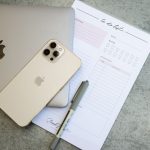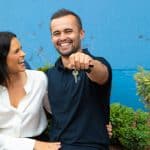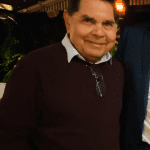How studying reinvigorated Karl
Karl Briscoe and First Nations Foundation
- Career & Business, Money Lessons

Proud Kuku Yalanji man Karl Briscoe is the CEO of the National Association of Aboriginal and Torres Strait Island Health Workers and Practitioners (NAATSIHWP). Karl is halfway through a Master of Indigenous Business Leadership at Monash University. He shares with the First Nations Foundation how his studies have helped him to overcome personal tragedy, develop his leadership skills and connect with his culture in new ways.
How have you adapted to study at the Masters level, while working in a CEO role?
Whilst I have quite a busy job, I feel like it’s like having a newborn child: As a father, you’ll come home from work and as soon as you see your child, you get this burst of energy. That’s how I feel with these studies. I get these thoughts and I know I need to get them down.
What made you apply for the program?
I believe that if you enjoy what you’re learning, you’ll never study a day in your life.
I was really picky about what course I enrolled in. I felt that if I couldn’t apply the learnings in my current role or take that onto my next role, it’s just a piece of paper. By looking over the course content to identify how these learnings would be a benefit not only my current work, but to the enablement of Aboriginal and Torres Strait Islander people for self-determination.
What aspects of your studies have you benefited from so far?
From the outset, the initial class, when we were all presenting who we are and what we do, I realised there was an underlying similarity. Whilst many businesses were presented in terms of prosperity, their motivation is not about money, but rather the betterment of Aboriginal and Torres Strait Islander people as a whole. That was my initial first day learning. It’s not about making all this money. They do make the money, but then they also give it back and the work that they do is about benefiting Aboriginal and Torres Strait people.
One of the key assessment pieces really made me look deep into myself and how my values have been shaped throughout my songlines or my leadership journey. I found that by undertaking this process, I was able to identify in my adolescent years, through my early adulthood and middle adulthood, the events and situations has really shaped my values, my beliefs and my motivations. I’d never taken the time or been shown a safe process for that.
After we had to present our songline journey, it made me think of the importance of a very strong cultural grounding in connection to country. In order to overcome your challenges, you can always draw on strength or resilience by going back if you don’t live on your traditional land. Reconnect with your people, reconnect with your country.
What has studying taught you about where your values came from?
I am the eldest of seven and in 1997, I suffered a personal tragedy. I brought my brothers, sisters and mother into my house and they lived with me for a couple of months and I had three jobs. I was a porter, a waiter and I worked in a shop to support my family. Through that process, I later learnt hard work, dedicated, loyalty and honesty.
Being the eldest of seven, my brothers and sisters always give me a call for advice and information. Over time and with my mother passing away in 2015, that’s really heightened my leadership responsibility. The course gets you to look deep into yourself and identify my own values. It’s not just the professional side of things.
What do you think you’ll take away from the course?
One of the other things I’ve learnt thus far is about identifying my current legacies that I’m leaving behind and mentoring the next generation of leaders, just as my mentors have mentored me.
If we’re to help our people, we need to ensure what we’re doing is actually culturally safe.
Karl’s key takeaways
- Reconnect with country – Through revisiting traditional land, you can find strength in challenging times.
- Have a motivation beyond money – Karl found by discovering his passions and community-focused motivation, money was a secondary motivation.
- Seek mentorship (or be a mentor) – Having a mentor who understands your culture can help you to build professional and personal leadership skills.
This is an edited transcript of a conversation between Karl and the First Nations Foundation.
Let us know if you liked this article
Let us know if you liked this article




